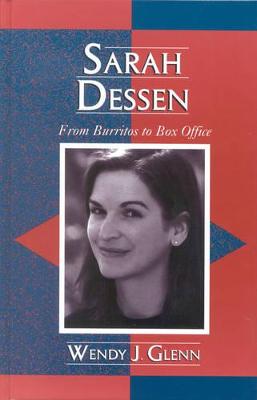Studies in Young Adult Literature
2 primary works • 3 total works
Book 29
Book 36
Laurie Halse Anderson's path to writing for young adult readers was indirect, unintentional, and difficult. Although Anderson may never have set out to write for teens, her commitment to creating stories that enrich, disquiet, and guide the teens she admires led to her selection as the 2009 recipient of the prestigious Margaret A. Edwards Award. The author of several highly acclaimed novels-including Speak, Fever 1793, Prom, Chains and Wintergirls-Anderson channels the lives of real readers through her imagination and onto the page, enrapturing those who ultimately see themselves reflected in her tales. In Laurie Halse Anderson: Speaking in Tongues, Wendy J. Glenn examines the life and works of one of the most popular authors for teens. Drawing from both primary sources (Anderson's writings, published interviews, speeches, the author's blog, and other online sources, as well as a live interview with the author) and secondary sources (reviews of and scholarly articles on her work), Glenn explores the themes and impact of Anderson novels. This richly researched work includes in-depth analyses of each of Anderson's young adult titles, chapters on Anderson's lesser-known writings for children, short stories, and poems, and a synthesis of reviews for each title Anderson has published. Readers of this book will come away with a greater understanding of an author who has demonstrated the marked capacity for writing diverse texts for multiple audiences in varying genres, breaking barriers with each title she creates.
Dessen's body of fiction appeals to readers on many levels. Her writing style is complex yet readable, rich in meaning yet accessible. Adult readers find themselves drawn to her works for their passages of grace and good humor. They are reminded of the joys and frustrations they experienced during adolescence, those years that seemed to last an eternity at the time but now seem to have passed when they weren't looking. With her wit and insight, Dessen takes older readers back. With her honesty and sensitivity, she moves adolescent readers forward. Dessen's novels offer not only high-quality writing, but also characters who experience life as young people do, featuring teens working to figure out who they are, upon whom they can depend, and how to assert their place in an increasingly complex world. Dessen speaks to her readers, taking on weighty issues with skill and intention, refusing to talk down to the young people who find themselves both lost and found in the fictional worlds she creates. She knows how to balance the heavy with the light, weaving humor and quirkiness into stories that deal with themes weighty with emotional baggage. Each of the six young adult novels Dessen has published has received critical acclaim within the world of adolescent literature, as evidenced by successful reviews and accolades in the form of literary awards. Several key patterns emerge in the discussion and evaluation of Dessen's novels. In her fiction, she explores the complexity of human relationships between and among characters, undermines gender expectations, develops the themes of self-perception and identity, creates eccentric and memorable secondary characters, and uses humor to help readers bear the angst of teenage life. Because Dessen's body of fiction contains just six titles, this work explores deeply each of her novels, tracing the existence of the above-noted patterns while seeking the distinctive flavor that sets each work apart from the others.


